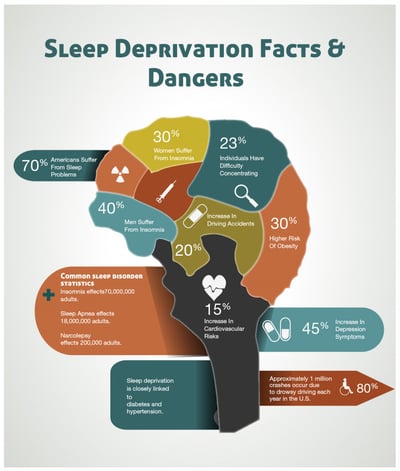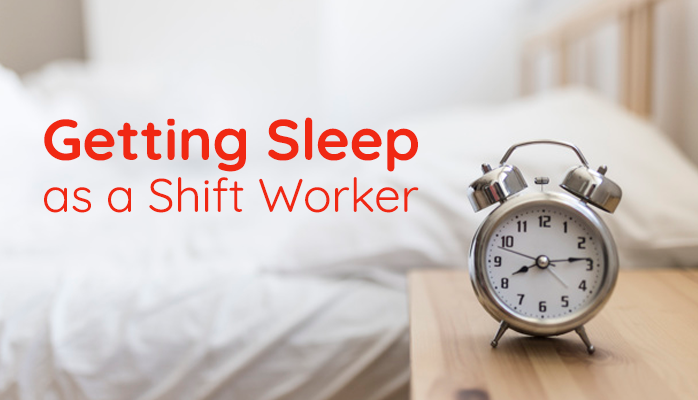Do you work hours outside of the “typical” 8-5 business day? Do you work days on and then days off? If so, then you are like millions of Americans who are considered shift workers. Especially in Alaska, the summer season often means a large influx of shift work.
Shift workers include:- Pilots
- Construction workers
- Police workers
- Doctors and nurses
- Firefighters
- Taxi/Lyft/Uber drivers
- Customer service
- Retail
Do any of these look familiar? While shift work comes with certain perks, such as better pay for similar jobs and the ability to get stretches of time with no work, shift workers are also at a disadvantage when it comes to long-term health and sleep outcomes.
Sleep and Health Risks of Shift Work
Shift workers are at increased risk for a variety of chronic illnesses, such as heart disease and gastrointestinal diseases [National Sleep Foundation]. There are also psychological concerns with shift work, such as low morale from impacted social life and risk of depressive mood syndromes.
Shift workers are also more prone to developing sleeping disorders, such as circadian rhythm disorders and insomnia. On a related note, there are safety concerns for shift work as well. Driving home after a 24-hour shift, tired and fatigued, poses similar safety concerns as if you were driving drunk. Sleep deprivation from shift work also impacts decision making, reaction times, and so on.
Symptoms of Shift Work Related Sleeping Disorders
 The main complaint people who work shifts is chronic fatigue. Other symptoms include:
The main complaint people who work shifts is chronic fatigue. Other symptoms include:
- Insomnia
- Circadian rhythm disorders
- Reduced performance in all areas of life
- Lower life expectancy
- Chronic irritability and depression
How to Improve Sleep as a Shift Worker
Improving sleep as a shift worker is difficult, and your improvement may only be minor. Still, some improvement is better than none. Here are best tips:
- Ensure that you have an excellent, sleep conducive bedroom, such as blackout curtains, ear plugs, etc.
- Try and get consistent exercise on non-shift days
- Set a bedtime that you adhere too religiously – try to keep same bedtime even on non-work days
- Avoid oversleeping on non-work days
- Take short naps throughout shift-work
- Avoid excessive screen use before bed, especially on work days at it will delay sleep
- Avoid caffeine and alcohol before bed, as they can delay sleep
- Invest in a comfortable bed, sheets, and pillow
- Setting a bedtime routine
Having a bedtime routine is one of your surest ways to get consistent sleep (at least, as much as possible) on work and non-work days. Good bedtime routine habits may replace sleep medicine supplementation in some cases, and helps prevent you from the nasty cycle of low sleep on work days followed by sleep binging on off-days. Sleep deprivation from shift work is insidious:
- Lower quality of life
- Worse eating/drinking habits (i.e., energy drinks, more coffee, etc.)
- Worse performance in every aspect of life
Sleep deprivation is often followed by binge sleeping, which feels good but tends to perpetuate the sleep deprivation cycle.
If you are a shift worker in Alaska and are struggling to get the right amount of sleep, or are struggling with a sleep disorder, please contact one of our sleep specialists by clicking the orange button below to take a free online sleep test.


